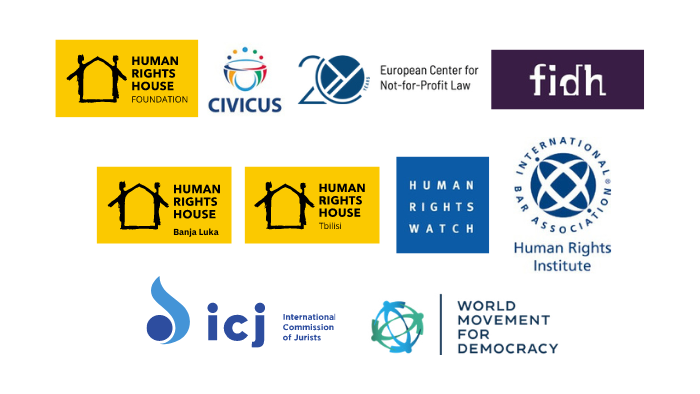
At @HRHFoundation #HRC56 side event on rising authoritarianism, we have an empty seat on the speakers’ dais. Anar Mammadli would be here, highlighting Azerbaijan’s appalling human rights record, were it not for his imprisonment by the authorities. pic.twitter.com/FL9wWAUdzx
— Dave Elseroad (@delseroad) July 1, 2024
Background
In recent years, there has been a marked resurgence of authoritarianism in various parts of the world, including Eastern Europe. This rise has been characterised by restrictive legislation aimed at reducing civil society space, increased threats against human rights defenders, the erosion of democratic institutions, and attempts to silence dissent.
This side event focused on the impact of rising authoritarianism on civic space, focusing on freedom of peaceful assembly and association and freedom of expression, by featuring case studies from Bosnia and Herzegovina, Georgia, and Azerbaijan. While these states have different political and human rights records, they are all experiencing new or renewed human rights challenges related to growing authoritarianism.
These challenges include the reduction of civil society space, restrictive NGO legislation such as “foreign-agent” laws, use or tacit approval of violence against independent voices, intimidation and smear campaigns against human rights defenders, illegal surveillance, defamation legislation, and suppression of peaceful protests.






